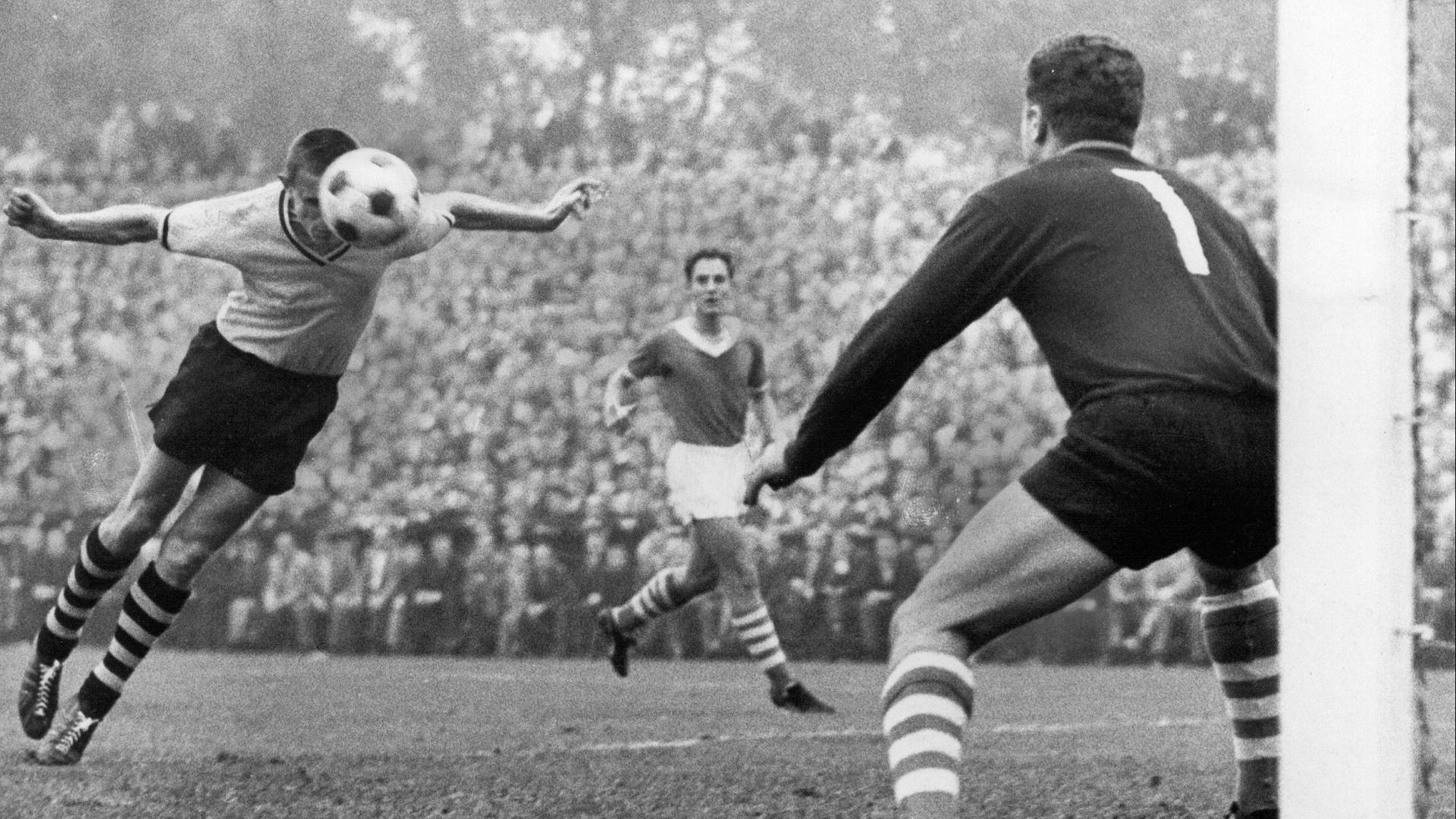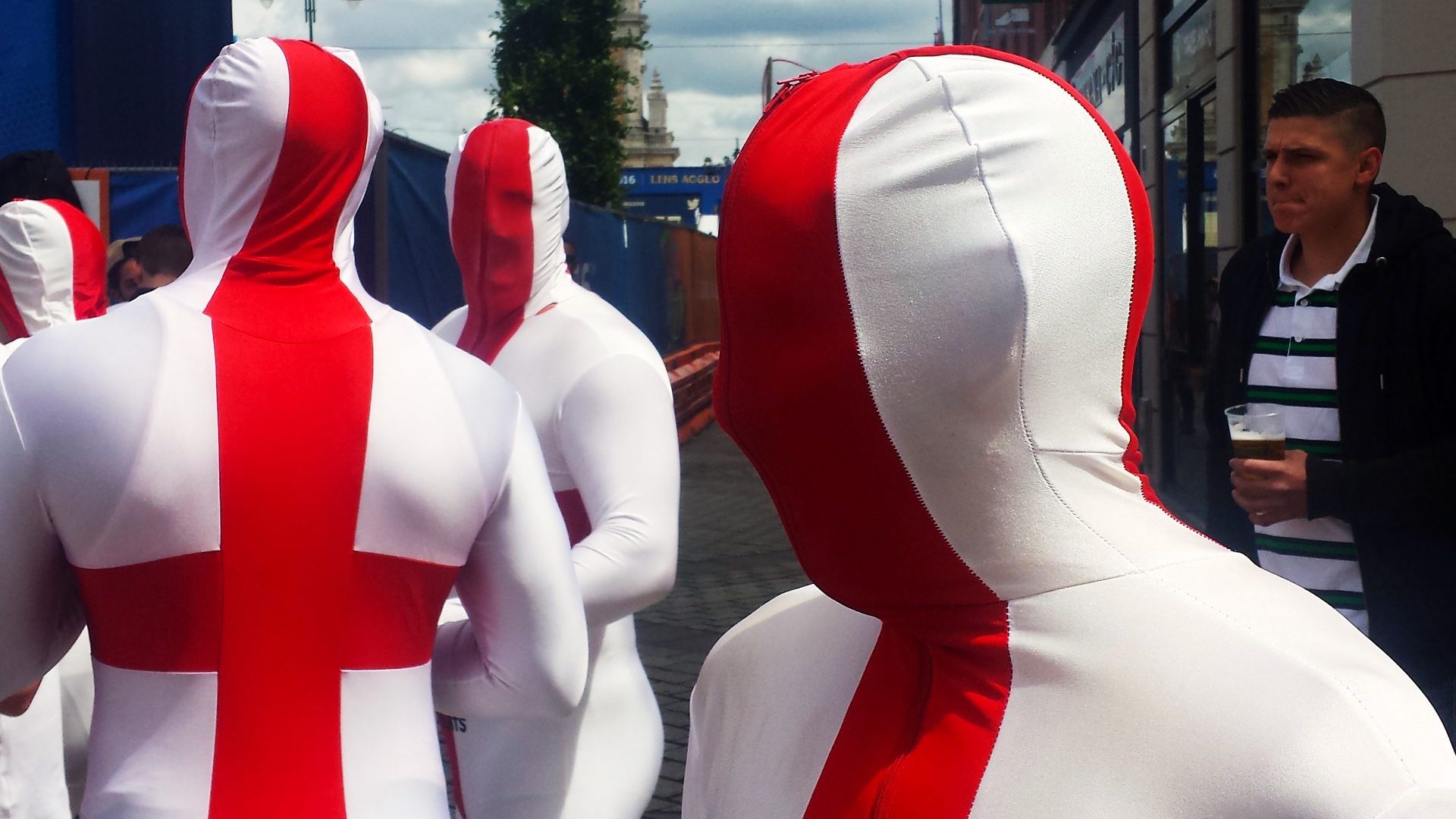For those of a Europhilic bent who are also devotees of the beautiful game, the men’s Euros beginning this week represent a celebration of both our continent and the football played its length and breadth, from Iceland to Georgia, Portugal to Norway.
As someone who remembers the nerdy World Soccer monthly magazine as the only reliable source of European football news, the golden age in which we live was unthinkable not too many years ago.
Britain might have regressed spectacularly in terms of its political relations with the rest of Europe but its football has never been more integrated. British clubs now have unprecedented opportunities to compete in European competition and there are even travel agencies and specialist magazines serving the demand for British football fans travelling to the continent to watch football.
Fancy a weekend jaunt to take in a game at 1. FC Saarbrücken, Cremonese or Vålerenga? There are people out there who can take care of that for you. Hankering after a Standard Liège away shirt, or that Ferencváros coffee mug that would absolutely complete the look of your kitchen cupboard? Available with a quick Google and a flourish of your CVC number.
Coverage has never been wider or better, either. Long gone are the days when John Motson or Barry Davies would commentate on English forays into Europe down crackling telephone lines, apologising for the regular loss of pictures and pointing out sniffily that the host country’s broadcaster was responsible. Today, almost every significant European game, international and domestic, is available to us in our living rooms in pin-sharp high definition and surround sound so good it’s as if Guy Mowbray is sitting on the sofa next to you.
This wave of interest has also spread to the bookshelf. The football publishing phenomenon unleashed by Nick Hornby’s Fever Pitch in 1992 has long passed its peak, but football is still a flourishing genre and the range of books available today is wider than ever before. Some are, inevitably, better than others.
The best long-form sports writing is all about context. For a football book to be properly absorbing it has to be about much more than who scored and when, it’s the stories behind the events on the field that matter, the backstory of the individuals involved, the geopolitical backdrop to the encounter, the circumstances, the colour, the history. Not just the story of the occasion but the story behind the occasion.
European football has long brimmed with such rich context. The game is entrenched across the continent, establishing itself and flourishing often against considerable odds during a tumultuous period of history and thriving everywhere, from the largest national capitals to tiny, out-of-the-way backwaters (take it from me, the most beautiful football ground in Europe is Við Margáir in Streymnes on the Faroese island of Streymoy, home of 2023 Faroe Islands Premier League champions EB/Streymur). Geography, regime, climate: football has adapted to all of them and the stories behind those adaptations can, in the right hands, make for great reading.
So, as the Euros come out of the traps with Scotland beating the hosts Germany in the opening game, possibly, what are the best books to read on European football, the primest literary cuts to flesh out the context of the tournament and prevent the gaps between matches becoming yawning chasms of ennui?
For a general history of the game in the host nation you won’t find better than Tor! The Story of German Football by Uli Hesse (Polaris Publishing, £14.99). This is a beautifully written book by an author utterly immersed in their subject yet who still manages to see the wood from the trees. From the game’s earliest manifestations Hesse picks the right stories and the best stories from the rollercoaster history of the game in Germany.
The extraordinary World Cup win of 1954 is covered brilliantly as is the launch of the Bundesliga. One of Tor!’s more startling revelations is that prior to the birth of the Bundesliga in 1963, Germany had never had a national football league. The photograph of the first Bundesliga goal ever scored, by Timo Konietzka of Borussia Dortmund at Werder Bremen 58 seconds into the opening day, is almost worth the cover price alone, a beautiful image of unadulterated joy heralding an extraordinary future for the German game.
Hesse’s excellent biography of Franz Beckenbauer, The Three Lives of the Kaiser (Simon and Schuster, £12.99), is just out in paperback, while his 2019 Building the Yellow Wall: The Incredible Rise and Cult Appeal of Borussia Dortmund (Weidenfeld & Nicolson, £9.99) and Bayern: Creating a Global Superclub (Yellow Jersey, £12.99), published in 2016, are superb primers on two of our continent’s biggest clubs.
Similar to Tor!, Phil Ball’s Morbo: The Story of Spanish Football (WSC Books, £9.99) is a terrific account of the history of the game in Spain at club and international level. It’s particularly good on the relationship between football and politics, as well as the great club rivalries that Spain seems to nurture like no other nation.
The most notable, of course, is that between Real Madrid and Barcelona, whose epic rivalry is documented superbly in Sid Lowe’s Fear and Loathing in La Liga (Yellow Jersey, £12.99). Combining history, reportage and interviews with some of the biggest names in the history of El Clásico, this is a book that says more about Spain than many conventional political histories.
The Basque country’s remarkable Athletic Club of Bilbao, who field only players born in the region yet still have arguably the most distinguished history of any club outside the big two, is well-served by Los Leones: The Unique Story of Athletic Club Bilbao by Christopher Evans (Pitch Publishing, £17.99) while Simon Kuper’s Barça: The Rise and Fall of the Club That Built Modern Football (Short Books, £9.99) sees one of our great modern writers placing Barcelona in the context of Spain’s past and present.
Italy has been curiously underserved by great football writing. The American writer Joe McGinniss’s account of following an overachieving small club from Abruzzo in The Miracle of Castel di Sangro (Sphere, £12.99), published in 1999, suffers from the author inserting himself firmly at the front of the story, while in a similar vein, Tim Parks’s A Season with Verona (Vintage, £12.99) remains popular nearly two decades after publication.
Paddy Agnew’s epic Forza Italia: The Fall and Rise of Italian Football (Ebury, £14.99) is probably the pick of the bunch, a wide-ranging, vivid and perceptive book by the Rome-based Italy correspondent of the Irish Times.
Elsewhere, David Winner’s Brilliant Orange: The Neurotic Genius of Dutch Football (Bloomsbury, £12.99) is one of the best football books of any kind, an outstanding analysis of the game, its place in the Netherlands and the cultural and historical reasons why the Dutch consistently produce club and international sides playing football that is beautiful to watch. This one is top of my reread pile for the Euros.
Away from the mainstream nations there are three other books I would heartily recommend keeping next to you on the sofa during the tournament. Chris Etchingham’s Emancipation for Goalposts: Football’s Role in the Fall of Yugoslavia (Ockley Books, £9.99) tells the important and overlooked story of the game’s place in the breakup of Yugoslavia, the vicious ethnic wars it triggered and their aftermath.
Matt McGinn’s suitably volcanically titled Against the Elements: The Eruption of Icelandic Football (Pitch Publishing, £12.99) is a hugely enjoyable account of a journey through the Icelandic game featuring interviews with people who have helped this country of just 350,000 souls to the upper echelons of the world game.
Jonathan Wilson is one of the most original thinkers writing about football today and has produced books on a range of topics, from a history of tactics to a novel based on the life and downfall of Soviet footballer Eduard Streltsov. Most appropriate for this summer’s tournament reading is his 2022 book The Names Heard Long Ago: How the Golden Age of Hungarian Football Shaped the Modern Game (Blink, £10.99), a hugely absorbing story of how the Hungarians revolutionised football during the 1950s despite the turmoil and trauma the nation was suffering.
A final word for the book I return to most often when it comes to European football. Published in 1955 and long out of print now, Willy Meisl’s Soccer Revolution still has much to say about the modern game and particularly England’s relationship with it.
Meisl was a Viennese sports journalist based in Berlin until a piece he wrote in 1934 praising Jewish sports figures in the light of their oppression made it pertinent for him to escape to London. The brother of Hugo Meisl, the man who built the legendary Austrian national Wunderteam of the 1930s, Meisl was a qualified lawyer who had also played in goal for Austria.
Most of all, however, he was a deep thinker about sport, deep enough to publish a book in Berlin in 1928 called Sport at the Crossroads whose contributors included Bertold Brecht.
A student of football history, Meisl was passionate about British football. That’s what prompted him to write Soccer Revolution, especially after watching England lose 6-3 to Hungary at Wembley in 1953 and, proving they had learned nothing from the experience, 7-1 in Budapest a few months later.
Meisl was frustrated at how blinkered by hubris English football had become, how it had fallen so far behind the rest of the world tactically and even in terms of basic technique that it would take generations to recover. Recovery could also only happen once the English had accepted the reality.
He set out a detailed plan for its improvement, advocating the use of substitutes a decade before they were introduced and suggesting lighter footballs, boots and kit; again years ahead of his time.
But it was in the boneheaded refusal of English football to accept it was not the power it was and its unwillingness to learn from innovative and progressive European nations that the biggest problem lay; one that Meisl addresses head on.
Meisl died in 1968 but it’s only in recent years that the English game has begun to accept and admit its failings and only now that tangible progress is being made in the way Meisl hoped. Soccer Revolution remains an extraordinary book.




